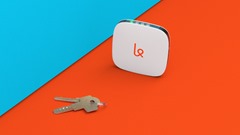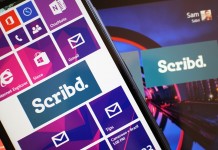 E-book readers who rely on their Karma Go 4G routers for bandwidth might have a reason to be happier now. In fact, the plan’s new terms might be even better for people who prefer downloading e-books to streaming music or movies.
E-book readers who rely on their Karma Go 4G routers for bandwidth might have a reason to be happier now. In fact, the plan’s new terms might be even better for people who prefer downloading e-books to streaming music or movies.
Remember how Karma launched a $50/month 5 MBPS unlimited-bandwidth plan called “Neverstop” but had to throttle it back to 2 MBPS almost immediately once it turned out people were using it more heavily than anticipated? Karma’s changing things up again, loosening the restrictions on average users in a way that should make a number of people happier with the plan.
In a blog post today, CEO Steven Van Wel admitted to making a mistake in the way the “Neverstop” plan was pitched. They expected “unlimited” usage would be higher than the metered “Refuel” plan, but didn’t anticipate some customers using more than 1,000 GB per month! (At Refuel plan rates, that would be $10,000 worth! Or $5,000 if you bought it on half-off sale.)
Some of you asked why we don’t simply kick off the bad guys. Frankly, we don’t think there are any bad guys. We offered an all-you-can-surf option, and people took us up on it. That’s on us.
But usage this high is not something that will work today.
Noting that customer feedback has made it clear that speed is important, Van Wel announced Neverstop will now come with 15 GB of bandwidth per month at the old 5 MBPS rate. After the cap is reached, data will be throttled back to 64 to 128 KBPS for the rest of the month—not enough for media streaming or massive downloads, but still sufficient for email, chat, and light websurfing. People who don’t hit the 15 GB cap will get a credit of $1 back for each GB they don’t use at the end of the one-month period.
Van Wel expects the change will have little to no impact on the majority of people who use Neverstop. “But, if you’re looking to binge watch Netflix 24/7, this probably isn’t the product for you,” he cautions, noting that Karma is still willing to take returns from people in that situation.
From my perspective, this change makes a decent amount of sense, and I might have to look again at my usage rates and figure out whether Refuel is still the better option for me. Do I use enough bandwidth that switching over to a plan that could cost me as little as $35 to $40 per month would save me more money than buying it as I need it? Doing the math, if I use less than 9 GB per month, Refuel would still save me money.
But for people who would be inclined to use in the 15 GB range per month, it would be a money-saver—that amount of bandwidth would cost $150 at Refuel prices, or $75 even at the buy-one-get-one sale rates.
Of course, people who want to use more than 15 GB per month will still be disappointed—but this plan isn’t meant for that kind of people. Mobile bandwidth still costs a lot of money, and you can’t expect to get all of it you want for a fraction of the cost.
It kind of reminds me of a science-fiction story called “All You Can Eat,” from the book Children of Infinity. An alien disguised as a human shows up at an all-you-can-eat buffet and proceeds to clean it out, because he’s matter-transmitting all the food home to his world, which is suffering from famine. The buffet wasn’t set up to deal with someone who could eat literally everything it could serve for just a few bucks, and Karma was effectively in the same situation. When it launched the program, it didn’t think there were many of that kind of people out there; it probably should have been wiser.
While this plan won’t suffice to substitute for heavy Internet users’ primary Internet plan, it was never really intended to, and they said as much at the outset. When they suggested people could try it anyway, they were referring to people who simply didn’t need that much speed or bandwidth because they don’t do that much on the Internet.
But it could still be useful for people whose Internet needs are much lighter, or who read a lot of e-books. People who use the service to “retrofit” 4G connectivity to their tablets and e-readers, or to save money on their own cellular provider’s per-gigabyte bandwidth tab, would still be able to download e-books easily enough at 128 KBPS even if they did exhaust the whole 15 GB. And if they don’t exhaust that 15 GB, they get a little money back on that month’s costs.
Of course, people who really don’t use the Internet much at all would still be better off on the Refuel plan, where they could spend $100 for 10 GB (or 20 if they catch it on sale) that might last them the entire year long. After all, most e-books don’t take up that much bandwidth to download.

































